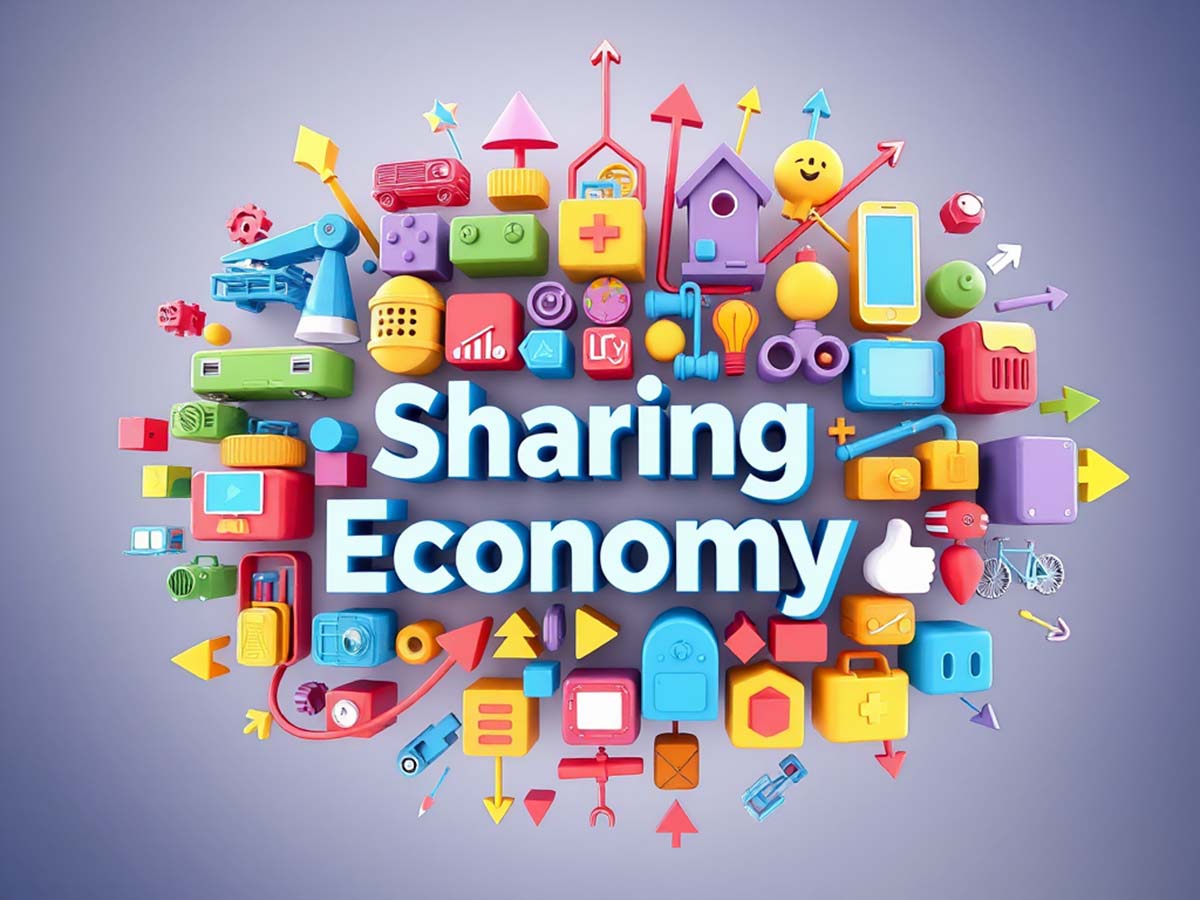
Digital tools have changed the way people work, shop, and connect with each other. Many individuals and small businesses now enjoy a smoother process for sharing goods and services. Whether you are a social media user, a content creator, or someone who runs a business, this change has a significant impact on your everyday life. This topic matters because it touches on how our daily routines are reshaped by easy-to-use online solutions and mobile apps.
Understanding Digital Tools
Digital tools include apps, software, and online platforms that let us manage tasks, exchange services, and communicate more effectively. Many of these tools started as simple ideas and have grown to support a wide range of needs. They are not just for tech experts—they are built with everyone in mind.
These tools offer benefits like:
- Simplicity: They are designed to be used by anyone.
- Speed: Tasks can be completed in a few clicks.
- Connectivity: They allow people to connect quickly and easily.
For example, a local handyman can use a mobile app to connect with neighbors who need repairs. This saves time for both parties and reduces costs. A food truck owner might use an online scheduling system to manage orders. These tools make everyday life more efficient and help small businesses grow.
The Sharing Economy Explained
The sharing economy is a system where people share resources such as transportation, living spaces, or even skills. Instead of owning everything, many now choose to rent or exchange items when needed. This approach can save money and reduce waste.
Consider these everyday examples:
- Ride-sharing services: People can find rides using a smartphone app instead of owning a car.
- Co-working spaces: Freelancers use shared office spaces instead of renting their own.
- Tool libraries: Neighbors share tools for home improvement projects rather than buying them.
These ideas not only cut costs but also foster community spirit. When people share what they have, everyone benefits from access to more resources. Digital tools play a key role here by making it easier to match supply with demand.
How Digital Tools Support the Shift
Digital tools have a strong influence on how the sharing economy grows. They help create smoother interactions between service providers and users. Here are some of the ways they support this shift:
- Improved Communication: Apps and online platforms enable quick messaging and feedback. This builds trust between users.
- Transparent Processes: Online ratings and reviews help people decide whom to work with.
- Easy Transactions: Many tools come with built-in payment systems that make exchanging money safe and simple.
- Access to Data: Users can see real-time information that guides their decisions, such as availability and price comparisons.
A local example can be seen in community gardens. Gardeners often use social media groups and simple scheduling apps to share plots, tools, and tips. This helps everyone enjoy fresh produce without having to buy expensive equipment or land. The digital connection makes it easier to set up such arrangements.
Practical Benefits for Communities
There are many practical advantages for communities when digital tools support sharing practices. These benefits can improve daily life for residents, small business owners, and those who offer services. Here are some of the main benefits:
- Cost Savings: People spend less money when they can share items rather than buy them.
- Less Waste: Sharing items means fewer products are made, which is good for the environment.
- Strengthened Community Bonds: Regular interactions build relationships and trust among neighbors.
- Increased Flexibility: Users can access services only when they need them, which helps with planning and budgeting.
Take a small town where a community center offers various shared resources. Residents might borrow gardening tools, cooking equipment, or sports gear. This system not only saves money but also encourages neighbors to meet and interact, leading to a stronger sense of community.
Real-Life Examples and Anecdotes
A small business owner, Maria, runs a local crafts shop. A few years ago, she began using a simple online marketplace to rent out her handmade products on weekends. Soon, she connected with other local makers who shared similar interests. They started a collective where each member contributed a unique product. This not only increased sales but also introduced customers to a variety of handmade goods. The online platform made it easy for them to manage orders and share ideas.
Another story comes from a suburban neighborhood. A group of friends started a car-sharing club. They scheduled shared rides for grocery runs and weekend trips. One member, who had an older vehicle, found a new way to earn a little extra money by offering rides to those who needed it. The experience brought the group closer together, and they continued to expand the system, including bike sharing and tool lending among neighbors.
These examples show how simple digital tools can change lives. They reduce the need for owning expensive items and make services accessible to more people. With an easy-to-use interface, these platforms help both providers and users communicate effectively and build trust.
The Role of Technology in Shaping Behavior
As more people begin to use digital tools, behaviors and expectations shift. Technology changes how we view ownership and resource use. This shift can be seen in various areas of life, including work, travel, and home life.
Consider the following points:
- Changing Priorities: Many now value experiences and community over material possessions.
- New Business Models: Small businesses adjust their offerings to match this trend.
- Enhanced Connectivity: With the click of a button, people find services and connect with others in need.
Digital platforms have made it easy to compare options, read reviews, and make informed choices. This transparency is one of the reasons why more people are willing to share resources rather than purchase them outright.
Digital Tools and Local Impact
The sharing economy is not just about saving money—it also supports local growth. When people share resources, they often end up spending locally. This creates a cycle of support among residents and small business owners.
Here are a few ways the local impact is felt:
- Community Workshops: Local groups might use digital platforms to organize events, where people learn new skills or exchange items.
- Skill Sharing: Neighbors can offer lessons or services, such as home repair tips, gardening, or cooking classes, through online networks.
- Local Markets: Some towns have created digital marketplaces for local produce, crafts, or secondhand goods. This helps keep money circulating within the community.
For example, a small city might host a monthly fair where residents can rent booths using an online system. This event not only provides entertainment but also supports local artisans and service providers. The digital tool behind the event scheduling and communication simplifies the process and helps maintain a vibrant local culture.
Challenges and Future Perspectives
The shift to digital tools and a sharing economy has many benefits, but there are also challenges that need attention. Trust remains a key factor. Many users rely on honest reviews and clear communication to decide if a service is right for them.
Some challenges include:
- Privacy Concerns: With increased online activity, users worry about the safety of their personal information.
- Regulation and Standards: Not all sharing platforms are created equal. Some may not follow fair practices, which can lead to issues for users and providers alike.
- Digital Divide: While many benefit from digital tools, some groups have limited access to technology or high-speed internet. This can leave parts of the community behind.
Looking ahead, many experts believe that the sharing economy will grow even further. Continued improvement in digital tools will likely address some of these challenges. More secure platforms, clearer rules, and broader access to technology will help create a more inclusive system. In turn, communities may become even more connected and supportive.
Practical Tips for Getting Started
For those who are curious about joining this shift, here are some simple steps:
- Start Small: Try renting a tool or joining a local sharing group online.
- Read Reviews: Look for feedback from other users to build confidence in a platform.
- Stay Informed: Keep up with local events and workshops that focus on sharing practices.
- Ask Questions: If you are unsure, reach out to others who have used the service. They can offer practical advice and tips.
Digital tools simplify everyday tasks and help create smoother routines. It is about finding ways to connect and share resources with others in your community. Even small steps can lead to big changes.
Digital tools and the sharing economy shift offer many chances to improve how we live and work. They provide a way for people to connect, help each other, and use resources wisely. Simple technology can make everyday tasks easier, support local businesses, and create more vibrant communities.
By choosing to participate in these systems, you join a movement that values connection and resourcefulness. Your actions help build a network where everyone can benefit. The power of shared services is not just in saving money—it is also about building relationships and strengthening local ties.


No Comments